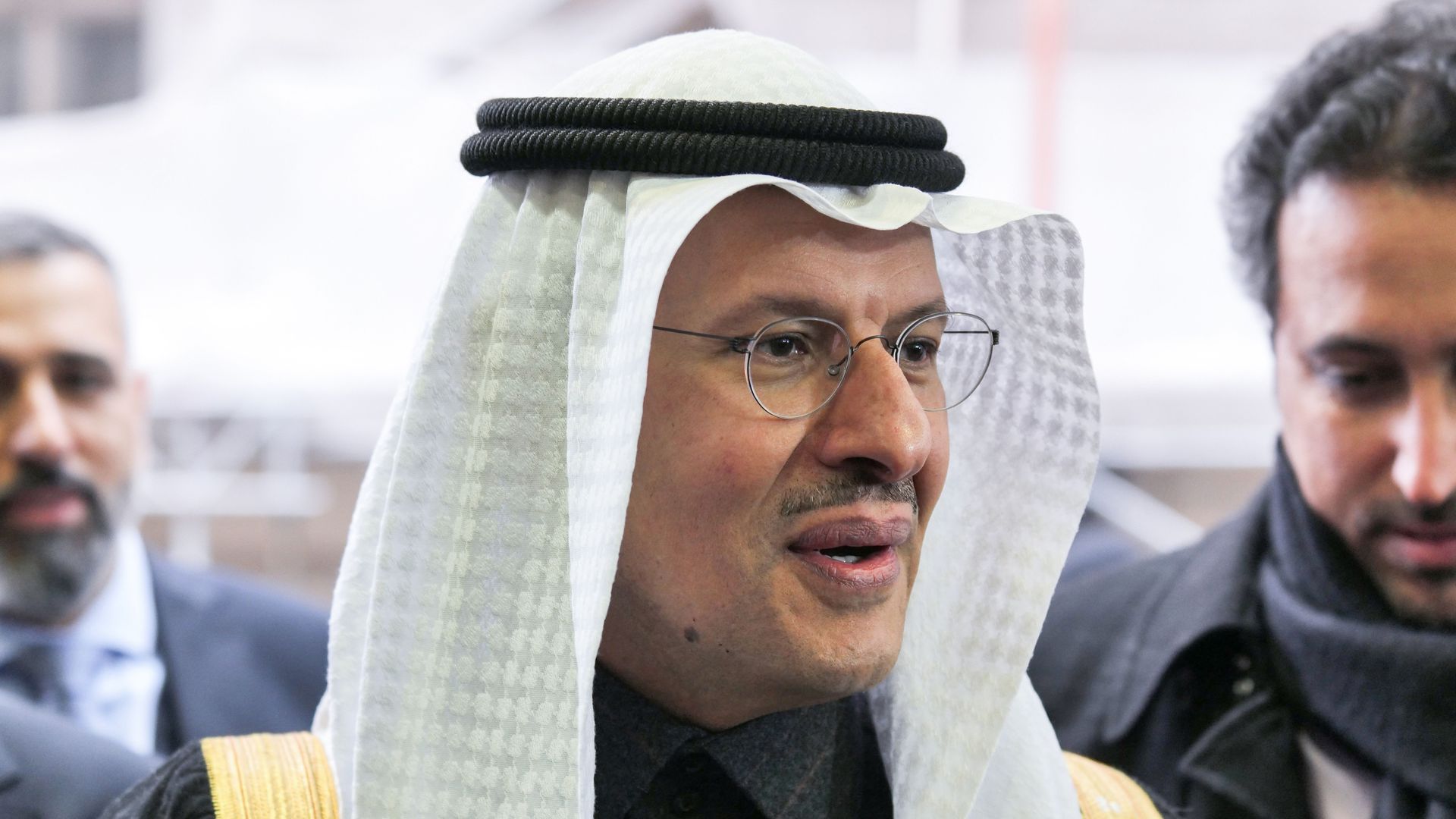Dec 5, 2019 - Energy & Climate
OPEC's moment of decision on oil production cuts
Add Axios as your preferred source to
see more of our stories on Google.

Saudi Minister of Energy Prince Abdulaziz bin Salman al-Saud arrives for the 177th OPEC meeting in Vienna, Austria, on Dec. 5. Photo: Joe Klamar/AFP via Getty Images
